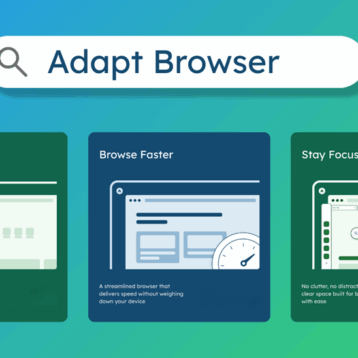In today’s interconnected world, with billions of people using the internet daily for work, learning, and entertainment, it is easy to forget that only some things on the internet are safe or legal. While full of incredible resources and legitimate content, the internet also has a hidden side where illegal activities and content can be accessed with relative ease. Understanding what is unlawful to watch or engage with on the internet is essential, particularly for users in countries like the United States, where internet laws are strictly enforced.
Legal Content and What You Can Safely Watch Online
Before diving into the illegal aspects, clarifying what constitutes legal content on the internet is essential. Most legal content on the internet falls into a few broad categories:
- Legitimate Streaming and Download Services: Watching content from licensed streaming platforms like Netflix, Amazon Prime, Hulu, or Disney+ is entirely legal. These platforms have the necessary agreements with content creators and distributors to legally offer a wide range of films, series, and documentaries. This legal framework ensures that users watching content on these platforms are within their rights.
- User-Generated Content Platforms: Websites like YouTube, TikTok, and Vimeo host vast amounts of user-generated content. Most videos, vlogs, tutorials, and other types of content on these platforms are legal to view, provided they do not violate copyright or platform guidelines. However, even on these platforms, content can sometimes slip through the cracks, and not all uploaded material may be legal or safe to watch.
- Educational Content and Open-Access Resources: The Internet is a vast repository of information and knowledge. Many websites provide access to legal educational materials, including academic courses, research papers, documentaries, and news articles. Sites like Coursera, Khan Academy, and official government pages provide legitimate content meant for educational and informational purposes.
While a plethora of legal content is available on the internet, it is crucial to be vigilant and aware of the content you consume. The digital space also harbors a vast amount of content that is illegal to watch and engage with. These categories are vital to know to avoid falling into potential legal trouble.
Different Types of Wired Internet Connections?
What is Illegal to Watch on the Internet?

Various types of content are illegal to watch, view, download, or even search for on the internet. The following categories highlight some of the primary types of content that are illegal to watch or engage with on the internet:
- Pirated Content and Illegal Torrenting:
- Torrenting refers to downloading and sharing large files, often movies, music, games, or software, directly between users without using a central server. Torrenting is not illegal; however, torrenting becomes unlawful when it involves copyrighted content. Downloading or watching pirated versions of movies, TV shows, or other content constitutes a breach of copyright laws.
- Consequences and Legal Risks: Many individuals caught torrenting illegal content face legal repercussions such as fines, warnings, and even civil lawsuits. Copyright holders often pursue legal action to protect their intellectual property rights. While arrest rates for torrenting are low, the risk of hefty fines and civil liabilities remains high.
- Child Pornography:
- One of the most serious and strictly prohibited types of content on the internet is child pornography. This includes any visual depiction of sexually explicit conduct involving minors, defined in the U.S. as individuals under 18. The possession, distribution, or viewing of child pornography is a criminal offense.
- Severe Legal Consequences: The penalties for engaging in any activity related to child pornography are severe and can include long-term imprisonment, significant fines, and a lifelong criminal record. Law enforcement agencies across the globe prioritize cracking down on those who produce, distribute, or view such illegal material.
- Criminals for Hire:
- The dark web, a part of the internet not indexed by standard search engines, is notorious for illegal activities. One such activity includes hiring individuals for criminal acts, ranging from hacking, illegal surveillance, and drug trafficking to more severe offenses like physical harm or even murder. Engaging with or seeking out these illegal services online is a serious crime.
- Consequences and Legal Ramifications: Any involvement in these activities, whether through direct communication or intent to hire, can lead to arrest and significant legal consequences. Law enforcement agencies continuously monitor these spaces and employ advanced technologies to track down individuals involved in such illegal endeavors.
- Terrorism and Associated Content:
- Online platforms can be used to promote terrorist ideologies, recruit members, or incite violence. Law enforcement agencies in many countries, including the United States, keep a close watch on content that could be linked to terrorist activities. Viewing or searching for content related to terrorism, such as bomb-making manuals or extremist propaganda, can trigger investigations.
- Watchlists and Law Enforcement Scrutiny: While merely reading news about terrorism is not illegal, actively engaging with terrorist content or joining extremist forums can attract government surveillance. Being flagged for potential terrorist activities can lead to being placed on watchlists or even direct legal consequences.
- Content on Illegal Weapon Modifications:
- In some countries, owning firearms is legal, but modifying them illegally is a crime. For instance, content related to creating fully automatic weapons, homemade silencers, or explosive devices is illegal to view or download. Searching for information on illegal weapon modifications can attract law enforcement’s attention.
- Penalties for Viewing or Engaging with Weapon Modification Content: The penalties for engaging in or attempting to engage in illegal weapon modifications can include hefty fines, lengthy prison sentences, and long-term restrictions on owning weapons.
- Murder and Crime Methodology:
- While browsing true crime documentaries or reading crime novels is legal, searching for content on how to commit a crime, such as murder, or how to cover up criminal evidence is a different matter. Authorities closely monitor these types of searches to prevent potential criminal activities.
- Potential for Arrest or Investigation: While an innocent search for crime news won’t usually cause issues, searches for more specific, suspicious content related to committing crimes or evading law enforcement can attract scrutiny.
- Illegal Drugs and Related Content:
- Buying illegal drugs online, particularly on the dark web, is a criminal act. Additionally, viewing or searching for content related to the production, sale, or distribution of illegal substances is also illegal and can attract legal consequences.
- Risk of Law Enforcement Attention: While casual research on drug statistics or rehabilitation might not attract attention, searching for ways to buy or sell drugs or manufacture them illegally could land you in serious legal trouble.
- Content Uploaded Without Consent:
- Uploading and sharing someone else’s private videos, images, or other forms of property without their permission is illegal. This includes revenge porn, secretly filmed content, or any other form of non-consensual content.
- Viewer Risks and Potential Legal Issues: Even viewers of such content could face legal consequences if they are caught downloading, sharing, or distributing it further.
The Future Of The Internet Of Things
The Consequences of Viewing Illegal Content Online
Engaging with illegal content on the internet can result in numerous negative consequences:
- Severe Legal Consequences: Penalties for viewing illegal content vary by country and the type of content accessed. For example, viewing pirated content could lead to fines and civil suits, while viewing more severe illegal content, such as child pornography or terrorist materials, can lead to long-term imprisonment.
- Digital Trails and Permanent Records: Every action taken online leaves a digital footprint. Even if a user deletes their browser history, server logs and digital records could still exist, which could be retrieved by law enforcement or used in investigations.
- Ethical and Social Consequences: Engaging with illegal content isn’t just a legal issue; it’s also an ethical one. Doing so can perpetuate various harmful and illegal practices, from exploitation to violence. Contributing to the demand for such content can exacerbate global problems.
Tips to Stay Safe and Legal on the Internet
To protect yourself from accidentally engaging with illegal content, consider these strategies:
- Use Reputable Platforms: Stick to well-known websites and platforms for your online activities. Avoid using lesser-known sites that might offer pirated or questionable content.
- Understand Local and International Laws: Laws governing internet usage can vary widely from one country to another. Being aware of these differences can prevent you from unintentionally breaking the law.
- Avoid the Dark Web: Unless you have a legitimate reason, it is advisable to stay away from the dark web, where much of the illegal content is housed.
- Be Mindful of Your Search Habits: Think carefully before typing anything into a search engine. Even seemingly innocent searches can raise suspicions depending on the context.
- Stay Informed: Regularly updating yourself on what is considered illegal to view online can help you navigate the web safely and avoid unintended consequences.
6 Things You Should Be Aware Of When Using The Internet
Conclusion
The internet offers incredible opportunities for knowledge, entertainment, and social interaction, but it also contains a minefield of illegal content that can have severe legal, ethical, and personal consequences. Understanding what is illegal to watch on the internet is crucial to avoid accidentally engaging in unlawful activities. By being aware of the potential dangers and taking steps to stay informed and cautious, you can enjoy the vast benefits of the internet while remaining on the right side of the law.










